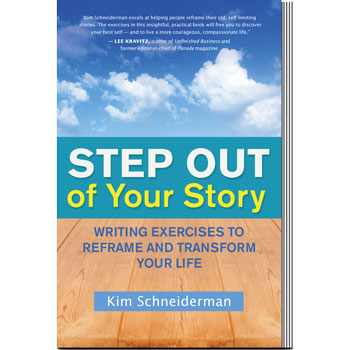If you’re like many people, accessing self-compassion can be a bit like searching your desk for reading glasses that are dangling over your chest. You didn’t lose your lenses, you just needed to know where to look.
It’s possible to see challenging life chapters as personal growth adventures by writing about the obstacles you face in the more expansive third-person narrative; in other words, referring to oneself as “he,” “she,” and “they” instead of the more natural “I,” “me” and “my.” Also, a dialogue with desired character strengths—for example, courage or compassion—can evoke these voices within.
Because we may often be kinder towards our friends than towards ourselves—consider the cognitive behavioral therapy (CBT) question “What would you say to a friend in the same situation?”—my assumption was that writing about difficulties in your life as if they were happening to someone else would facilitate a similar compassionate stance. My hope was that, by creating some psychological distance through the third person voice, readers could bypass the critic, access latent internal strengths, become more curious about their unfolding story, and feel more empathetic towards themselves and the tensions in their storyline.
This was not some clever gimmick. During my college years as an English major and later in book groups, I had an easier time talking about and feeling compassionate towards protagonists with whom I identified. By contrast, speaking about my own personal struggles in the first person felt more vulnerable, more evocative of my ego, and therefore likely to trigger my inner critics.

Leave a Reply